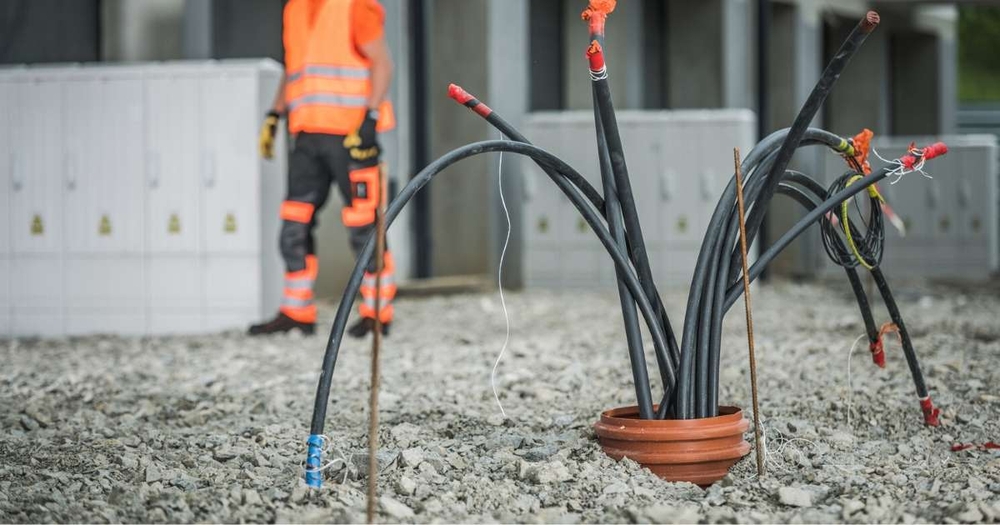
Before excavation or outdoor construction can begin, a surveyor is called in to identify and mark boundaries and locate underground utilities. Having access to reliable utility locating equipment is essential for the safety of your crew, and for your bottom line.
Underground utility locator equipment is an important investment; making the right choice will save you time and money, not to mention digging in the wrong location could damage a power or gas line, putting workers at risk.
Here is what you need to know when choosing the best underground utility locators.
You can never be too careful when it comes to underground detection before excavating a site. From water and sewer lines to gas and cable, hitting a utility line can be an expensive and time-consuming mistake.
Before work begins, it is necessary to call the state one-call office to send a contractor out to mark the lines. Unfortunately, even if a contractor has marked the utility lines, the markings may not be as accurate as you need them to be. Interference may impact the readings and the contractor may not mark privately owned lines.
To ensure safety and accuracy, it is a good idea to have your own utility locating equipment. Underground survey equipment enables you to double-check the markings before you dig, saving you from costly and potentially dangerous errors.
Underground utility locators typically use one of two methods: active or passive locating.
An active line locator searches for a specific utility line using an inductive method or a direct connection. The line locator equipment is attached directly to the line or, if that is not possible, it induces a frequency into the ground that is reradiated by the utility. Passive utility line locators are typically used to detect unknown lines. The operator uses the receiver to sweep the area, checking for pipes that radiate frequencies.
The trouble with passive line locating equipment is that it does not distinguish between different types of lines. You may not be able to tell the difference between pipe, cable, or gas pipeline but you will be able to determine their location. This is where choosing the right type of utility line locating technology comes in.
There are two different types of pipeline locators: single frequency and multiple frequency. Both use ground-penetrating radar to identify objects in the ground.
Single-frequency pipeline locating is the oldest method, consisting of a transmitter placed in the ground that produces a single high-frequency signal. Multiple frequency locators offer several frequencies, allowing you to distinguish specific utilities and to locate them in congested areas.
Underground pipe locating tools are necessary any time you plan to excavate a site. The state's one-call contractor will do most of the work for you, but having our own cable locating equipment allows you to check the markings. This saves you the hassle and the expense of having to call the contractor out again.
Having your own utility locate equipment is also a benefit in areas where private lines are likely to be found. The one-call contractor may only mark known lines. Locating all of the water pipes, power, gas, and cable lines in the area is essential before you dig.
Utility locating equipment is typically categorized by use-case. Magnetic locators, for example, detect ferromagnetic objects (iron or steel) that are isolated from other objects. This typically includes steel property pins and gas valves but are also often used as in locating septic tanks detecting steel drums.
However, a magnetic locator is not ideal for tracing buried utilities like power, gas, and water. For this application, a cable and pipe locator is the best tool for the job. Not only can this tool locate utilities, but it can determine the difference between different lines.
Pipe and cable locator equipment involves two separate parts: the transmitter and the receiver. The transmitter is used to induce a ground-penetrating signal onto a cable or pipe while the receiver is used to locate the signal. Underground pipe locators can be used to find any buried utility of metallic construction. A pipe tracer may also be able to pick up non-metal utilities if there is a tracer wire buried alongside it.
Reliable equipment makes all the difference when locating underground pipes, but just as important is the intended use; the best pipe locator for one application may not be the ideal solution for every job.
Here are some factors to consider when shopping for pipe and cable locators:
The key to doing your job well is having the right equipment. Cable locators and other utility detecting tools put the power of ground-penetrating radar in your hands. When you know exactly where water, power, and other utility lines are, you can avoid them and avoid making costly mistakes. Investing in
high-quality utility locators is an investment in your business.